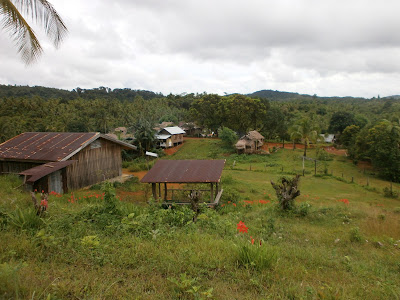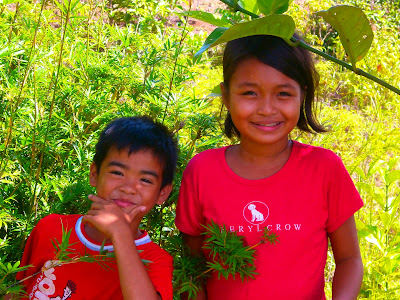HEALS believes that the best way to be a people's advocate is to learn how they live. Part of its program then is to provide students and professionals the opportunity to integrate with communities. Last November 2011, a doctor and a nurse went to an interior barangay in the town of Gen. MacArthur, Eastern Samar for a two-week immersion.
There was no electricity in the community so that the nights were spent huddled around a small lamp telling stories or playing chess.
The people live on crops they planted. Most was on a subsistence level. Only when they have extra harvest do they get to trade their crops during "tabo" or market day.
Farming was primitive. There were no machines or modern method used.
The community was beautifully situated up a hill away from modern day living. Cellphone signal was difficult. One had to climb another small hill and use a stick to get a message sent.
The diet consisted of rootcrops harvested from our hosts' farm as staple food, and may include frogs or freshwater shrimps caught during the night. They could be cooked fried or with coconut milk.
Most of the population are children. The school offers only primary education, that is from Grades I to III. After finishing the three levels, they would either go to the town's central school or stop altogether due to difficulties finding a place to stay during school days or not having someone with them to guide them as their parents had to work in the farm.
Despite the poverty, the air was fresh, the water from a nearby spring was safe (a water system was set up there by another NGO) and the people generous.
As way of thanking the community and as part of our contribution to trying to improve their lives, health education on herbal medicines, common signs and symptoms as well as common diseases were given during two-week period.
















No comments:
Post a Comment